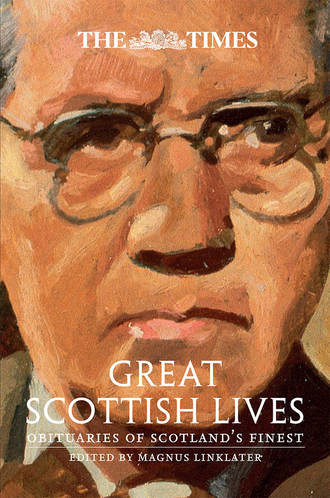
The Times Great Scottish Lives: Obituaries of Scotland’s Finest
By nature a metaphysician and by profession a lawyer, he had an exact and an exacting mind, and, though he was in private a kindly and generous man who was neither unduly puffed up by success nor soured by misfortune, he was, in public, singularly without those qualities, good and bad − qualities of ease and warmth and humour on the one hand, of flattery and smooth persuasion on the other − which endear a politician to the masses and, perhaps, to more exalted audiences as well. He had, in short, a seeming tendency, when engaged in controversy, to treat the world as a class-room which made it at once intolerant of his mistakes and less grateful than it might otherwise have been for his high administrative and intellectual services.
Richard Burdon Haldane was born on July 30, 1856, of Scottish and Northumbrian stock. His father, Robert Haldane, belonged to an old Scottish family, and was a Writer to the Signet in Edinburgh. His mother, who died on May 21, 1925, in her 101st year, was a daughter of Richard Burdon-Sanderson, a country gentleman with property in Northumberland, and a great-niece of Lords Stowell and Eldon. Haldane was educated at Edinburgh and Gottingen Universities, obtaining first-class honours in philosophy at Edinburgh, and the Gray and Ferguson scholarships open to the four Scottish Universities.
Конец ознакомительного фрагмента.
Текст предоставлен ООО «ЛитРес».
Прочитайте эту книгу целиком, купив полную легальную версию на ЛитРес.
Безопасно оплатить книгу можно банковской картой Visa, MasterCard, Maestro, со счета мобильного телефона, с платежного терминала, в салоне МТС или Связной, через PayPal, WebMoney, Яндекс.Деньги, QIWI Кошелек, бонусными картами или другим удобным Вам способом.
Приобретайте полный текст книги у нашего партнера:

